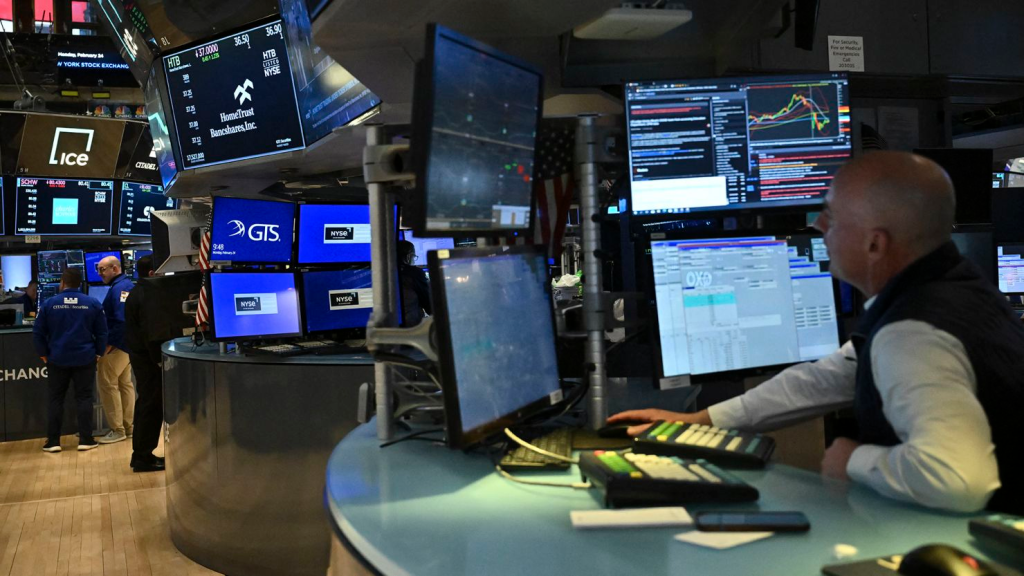Wall Street stock futures dropped and Treasuries ticked higher as President Donald Trump’s protectionist policies and cuts to the federal workforce dented confidence in US economic outperformance.
Contracts for the S&P 500 declined 1%, following the worst week for the benchmark index since September, while those on the Nasdaq 100 lost 1.1%. Shares in Tesla Inc. fell about 3% in premarket trading on Monday, inching toward erasing their post-election gains, and most other Big Tech names also dropped, including AI bellwether Nvidia Corp. European stocks slipped 0.4%.
Mounting unease over the potential fallout from trade tariffs and sweeping government job cuts sent 10-year Treasury yields five basis points lower. The key borrowing rate has dropped more than 20 basis points in the past month, signaling risks that the world’s biggest economy will stall.
Tariffs and Trump’s policies have started having their “fair share of pressures on the equity markets, plus we have now started seeing a lot of concerns around US growth,” Sanford C. Bernstein strategist Rupal Agarwal.
Get the Markets Daily newsletter to learn what’s moving stocks, bonds, currencies and commodities.
Trump said at the weekend the US economy faces “a period of transition,” while Treasury Secretary Scott Bessent earlier warned of disruption to growth. Bessent also ruled out policy shifts to prop up the stock market, the so-called “Trump Put.”
Meanwhile, more analysts are warning of a hit to corporate earnings from tariffs and fiscal spending cuts. Morgan Stanley strategist Michael Wilson said the S&P 500 could slide 5% in the first half of the year, though he expects a recovery by year-end. JPMorgan Chase & Co. analysts also said they are turning cautious on risk assets.
Among other premarket stock movers, cryptocurrency-exposed names fell as Bitcoin extended losses for a fifth consecutive session. Coinbase Inc. lost ground after S&P Dow Jones Indices left out the crypto exchange operator from the S&P 500 benchmark, though food delivery firm DoorDash Inc. jumped as it was included in the gauge.
Earlier, Chinese shares listed in Hong Kong slipped as consumer inflation fell below zero for the first time in 13 months, compounding the dour outlook for the world’s second-biggest economy.



